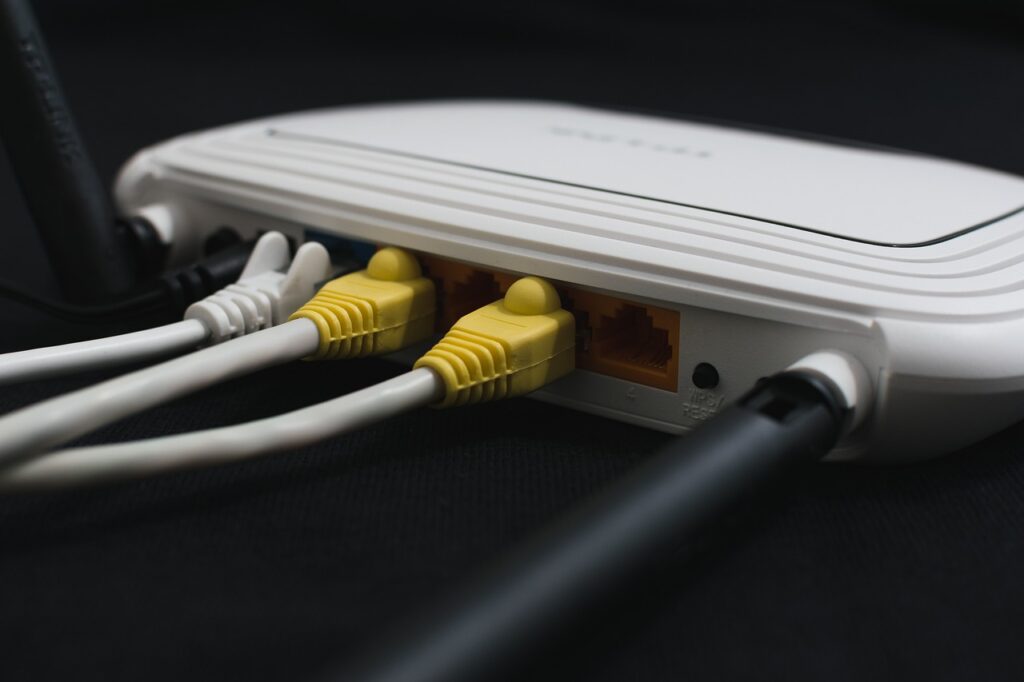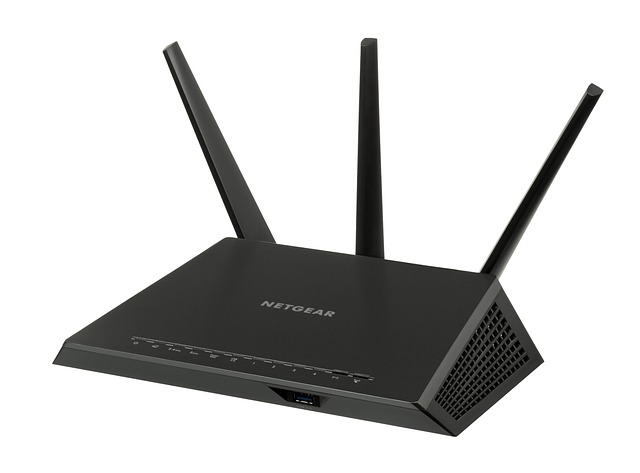A Wi-Fi router is a networking device that forwards data between computer networks, specifically between your local home or office network and the internet. It combines the functionality of a router and a wireless access point, providing a way for wireless devices such as laptops, smartphones, tablets, and smart home devices to connect to the internet without physical cables. In simpler terms, it acts as the middleman between the internet service provider (ISP) and the various wireless devices in your space, ensuring efficient communication and internet connectivity.
How Does a Wi-Fi Router Work?
At its core, a Wi-Fi router works by transmitting data wirelessly over radio frequencies. Once it’s connected to a modem that links to your ISP, the router disperses internet signals in the form of radio waves. Devices with wireless capabilities detect these signals and use them to connect to the internet. Modern routers often use dual or even tri-band technology to manage multiple connections and provide optimal internet speeds.
Each device that connects to the Wi-Fi network receives an IP address from the router, ensuring that data packets are delivered accurately to the right device. Advanced routers also offer additional features like firewalls, virtual private network (VPN) support, parental controls, and Quality of Service (QoS) settings to prioritize specific types of network traffic, such as streaming or gaming. https://www.wired.com/gallery/best-wifi-routers/

Uses of a Wi-Fi Router
Wi-Fi routers have become an integral part of modern life. Here are some of their key uses:
- Internet Access: The primary function of a Wi-Fi router is to provide internet access to multiple devices simultaneously. It eliminates the need for wired connections, offering flexibility and mobility for users.
- File Sharing: Within a local network, Wi-Fi routers allow devices to share files quickly and efficiently. Users can send documents, photos, and other files between computers or mobile devices on the same network without using external media.
- Smart Home Connectivity: Wi-Fi routers serve as the backbone of smart home systems. Devices like smart speakers, security cameras, thermostats, and lights all depend on a Wi-Fi network to function and interact with each other.
- Online Gaming and Streaming: Modern Wi-Fi routers are designed to handle high-speed data transfers, making them ideal for online gaming and video streaming services like Netflix, Hulu, and YouTube. They ensure a smooth, uninterrupted connection by optimizing bandwidth usage.
- Remote Work: With the rise of remote work, a reliable Wi-Fi router has become crucial for video conferencing, cloud-based software access, and other work-from-home activities.
Types of Routers
Wi-Fi routers come in various types to cater to different needs, environments, and users. Here are some of the most common types:
1. Single-Band Routers
A single-band router operates only on the 2.4 GHz frequency band, which is widely used by many devices. These routers are typically more affordable but may be slower and more prone to interference due to the congestion of devices sharing the same frequency. They are suitable for basic browsing and small households with fewer devices connected to the network.
2. Dual-Band Routers
As the name suggests, dual-band routers operate on two frequency bands: 2.4 GHz and 5 GHz. This provides better performance and flexibility, as users can assign less critical tasks like web browsing to the 2.4 GHz band, and high-bandwidth tasks like streaming or online gaming to the 5 GHz band. Dual-band routers are ideal for homes with multiple users or devices that need fast internet access.
3. Tri-Band Routers
Tri-band routers include one 2.4 GHz band and two separate 5 GHz bands, providing more bandwidth for a greater number of devices. These are recommended for larger households or environments with heavy internet use, such as smart homes with many connected devices. They help prevent network congestion by distributing the traffic load more effectively.
4. Mesh Routers
Mesh routers are designed for large spaces where traditional routers might struggle to provide full coverage. In a mesh network, multiple nodes (or units) are placed around the home or office, creating a blanket of Wi-Fi coverage. Unlike traditional routers with a single point of failure, mesh routers work together to ensure seamless connectivity, even in hard-to-reach areas.
5. Gaming Routers
Gaming routers are designed with specific features to enhance the gaming experience, such as low latency, fast data rates, and advanced Quality of Service (QoS) settings. These routers prioritize gaming traffic, reducing lag and offering a more reliable connection for online gamers.
6. VPN Routers
VPN routers come with built-in Virtual Private Network (VPN) capabilities, allowing users to encrypt their internet traffic for secure browsing. These routers are particularly beneficial for users who need an extra layer of privacy or want to bypass geo-restrictions on content.
Choosing the Right Wi-Fi Router
Selecting the right Wi-Fi router depends on several factors, including:
- Number of Devices: Consider the number of devices that will connect to the router. For homes with multiple smart devices, a dual-band or tri-band router will be more suitable.
- Internet Speed: Your router should match the speed provided by your ISP. There’s no point in having a high-speed internet plan if your router can’t handle the bandwidth.
- Coverage Area: For larger homes or offices, a mesh system might be a better option to ensure complete coverage without dead zones.
- Specific Needs: Gamers or individuals working from home should consider routers with advanced features like QoS settings, VPN support, or low-latency gaming modes.
Conclusion
A Wi-Fi router is a critical device that allows seamless internet access across multiple devices. With different types of routers designed for varying needs, users can easily find one that fits their specific requirements, whether it’s for basic browsing, gaming, or full-home smart connectivity. Understanding the features and capabilities of a router is key to optimizing your internet experience and ensuring a smooth, uninterrupted connection.

